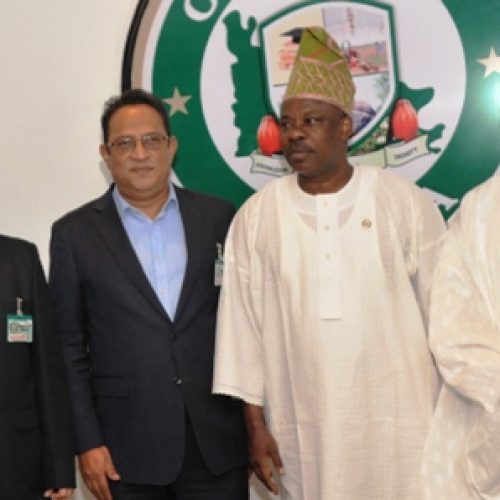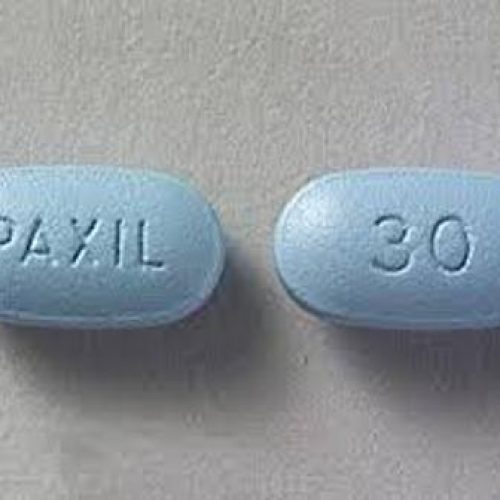Nigeria launches new FP communication plan, logo
ABUJA – New multi-media communication plan and logo expected to help increase the use of modern contraceptives in Nigeria will be launched this Monday.
At a briefing by the Federal Ministry of Health at the weekend, the new plan and logo, government said, would replace the one developed 25 years ago.
The new initiatives will be launched at 5th Annual Family Planning Consultative Stakeholders meeting in Abuja, and it is expected to help change behavioural pattern of Nigerians to family planning/child spacing by further educating them on benefits of the programme.
The “Green Dot” logo was designed to help inform the public of the availability of family planning services in health facilities where it is found, nationwide.
Nigeria has over the last twenty years developed and implemented plans and strategies to address the country’s persistently low Contraceptive Prevalence Rate (CPR) with no significant improvement. In 2012, the Federal Ministry of Health and the United Nations Population Fund (UNFPA) commissioned a study to evaluate available data on barriers to utilization of family planning and propose high impact interventions to strengthen family planning programmes in the country.
Amongst others, the recommendation of the study was the need for an aggressive family planning communication campaign focusing on the identified barriers to uptake of family planning services in Nigeria.
This year meeting is expected to rally stakeholders’ attention to health and non-health benefits of the national family planning programme with the theme “Investing in Family Planning: Key to Achieving the Sustainable Development Goals in Nigeria.
Federal Government had pledged an annual provision of US$4mil from 2017 to 2020 for procurement of contraceptives for the public sector (an increase from the US$3 mil committed from 2011 to 2014) including payment of backlog of commitments.
In 2016, states governments allocated the sum of US$7,052,480 in matching funds for the family planning programme through the IDA loans disbursed through the Save One Million Lives (SoML) project and NSHIP project.
However, non-release of capital projects fund for health by Federal Government might jeopardize effective campaign for the programme across the nation. Federal Government’s counterpart fund for family planning is domiciled in capital budget for health.
However, non-release of capital projects fund for health by Federal Government might jeopardize effective campaign for the programme across the nation. Federal Government’s counterpart fund for family planning is domiciled in capital budget for health.
The Director of Family Health in the ministry, Dr Adebimpe Adebiyi, said at this weekend’s briefing in Abuja that the new logo was endorsed by National Council on Health at its 59thmeeting in Umuahia, Abia State.
The logo, she stated, targets 7.3 million women of reproductive age in the country who do not wish to be pregnant immediately or ever again to have access to modern family planning methods of their choice.
The new family planning communication plan, she stressed, serves as framework to guide the development and implementation of national family planning communication campaigns in the country towards the achievement CPR target of 36 percent by next year. The nation currently has CPR use of 16 percent (NDHS 2013)
Adebiyi pledged that the free contraceptive policy of the government would still subsist.
“Nigeria has by far the highest number of women and children dying in Africa, and the second highest in the world. It has made significant progress towards improving the health status of women and children based on the reduction in the maternal and child mortality and morbidity in the last fifteen years. However, this improvement has not been commensurate to the expected progress in comparison with the domestic resources and donor resources available in the country.
“The non-translation of Nigeria’s wealth and resources into impacts on the health status of women and children are attributable to socio-cultural and religious factors, including myths and biases that are prevalent within families and communities in Nigeria. Each day it is estimated that about 100 women die in the process of giving life in Nigeria and about 30% of these deaths can be averted by improving access to contraceptives and increasing uptake of family planning services. It is sad that about 50% of adolescent girls in Nigeria are already mothers by the time they celebrate their 20th birthday.
“The Federal Government of Nigeria acknowledges the strong link between the structure of Nigeria’s population and its national development. We also understand the potential advantage of the youth bulge and we are committed to helping mothers, their babies and families to survive and thrive through interventions to accelerate the reduction of current maternal and child mortality rates. In this context, we are committed to enhancing access to, and utilization of essential, basic life-saving interventions, including the reducing the current unmet need for family planning,” part of a statement made available to Nigeria Health Online by UNFPA on behalf of the government at the weekend read.
The release furthered that Nigeria commits to achieving the goal of a contraceptive prevalence rate of 36% by 2018 based on the National Health Strategic Development Plan (2009 – 2015) and the FP Country Implementation Plan (Blue print 2014).
“In an attempt to integrate the Global FP2020 initiative to fast track family planning programs in 46 countries including Nigeria and the Every Woman Every Child Every Adolescents Every Where (EWECEAEW Global Strategy 2.0) into the Nigeria Health Development Plan, Nigeria has pledged to save the lives of 1 million women and children.
“UNFPA in collaboration with USAID has supported the Federal Ministry of Health to dialogue with stakeholders by convening the Family Planning Consultative meeting on annual basis from 2013 to date. In 2013 and 2014, the Stakeholders’ Consultative meeting convened by the Federal Ministry of Health with financial and technical support from UNFPA, Pathfinder, USAID, NURHI, Marie Stopes,” it stated.

















0 Comments
No Comments Yet!
You can be first to comment this post!